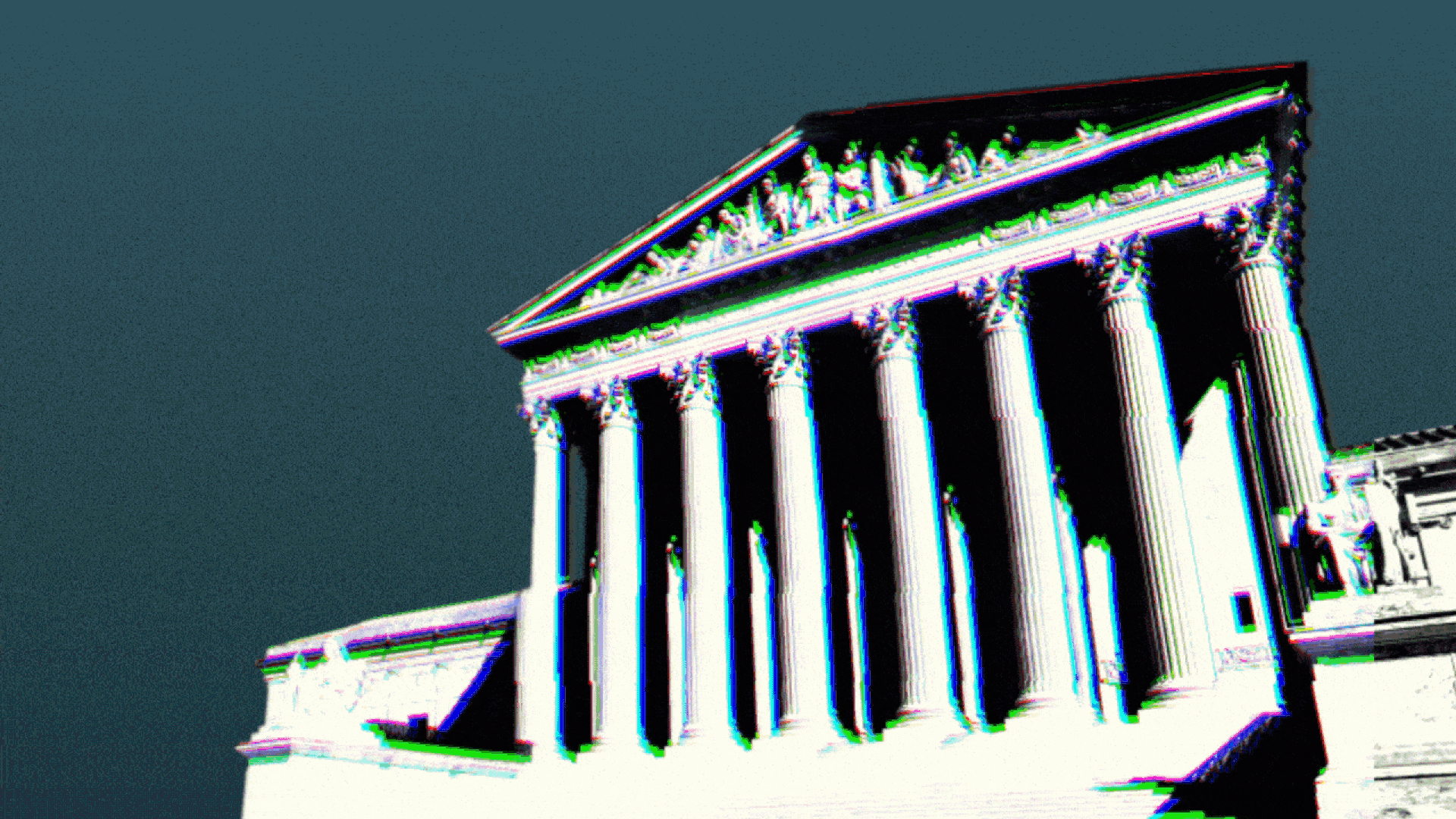
Illustration: Brendan Lynch/Axios
The firestorm over Big Tech and content moderation is coming to a head at the Supreme Court — but some experts fear it’s a job the court simply isn’t equipped to do well.
Why it matters: The court has historically not been great at grappling with new technology. As it dives into the political battle over social-media algorithms, there’s a real fear that the justices could end up creating more controversies than they solve.
Driving the news: The court is set to hear arguments this week in two cases involving Section 230, the federal law that says tech platforms aren’t liable for what their users choose to post.
- Both lawsuits — one against Google, and one against Twitter — argue that while tech companies may not be liable for the content of users’ posts, they should be liable for what their algorithms promote or suggest.
- The implications of such a decision may not be fully apparent for years, even to the engineers who work on those products.
“The court might think it’s doing one thing and it’s actually doing something very different,” said Evelyn Douek, a law professor at Stanford who specializes in tech law. “It’s ill-matched to the problem.”
The concern within the tech industry isn’t just that the court might rule against them — every party in a Supreme Court case has to worry about that — but that a Supreme Court ruling limiting Section 230, unlike a law limiting Section 230, could cause unforeseen issues down the road that even the law’s critics may not necessarily be happy about.
- Even if Google and Twitter win, there’s a realistic scenario in which “the court still says problematic things … that end up weaponizing the legal system against court moderation,” Berin Szóka, president of libertarian-leaning think tank TechFreedom, said during a roundtable with reporters last week.
- “There is a valid concern that the Court may simply not understand nor appreciate the technical complexities that drive the modern web,” wrote Jess Miers, a lawyer for the pro-tech Chamber of Progress.
Context: The Supreme Court is an inherently slow-moving institution that tries to solve problems mainly by searching for one broad principle that can last forever. And that’s simply hard to square with complex, evolving technology.
- That tension has been especially apparent in cases involving privacy and law enforcement.
- All the way back in 1979, the court ruled that police don’t need a warrant to obtain a list of every phone number you’ve called. Because you voluntarily turned that information over to a third party (the phone company), the court said, you have no reasonable expectation that it would be private.
- That might have seemed in 1979 like a pretty narrow ruling about landline phones. But the court has struggled to adapt its “third-party doctrine” to an era in which third parties have access to all of our correspondence, search queries and even our physical movements. If nothing your cell phone can track is private, then what is?
The Section 230 cases present a whole different set of issues, and they’re asking the court to interpret a statute passed by Congress, not the scope of a civil right.
- But it’s not that hard to see how nine lawyers in a room in 2023 might not foresee the future of content algorithms, just as nine lawyers in a room in 1979 didn’t know the scope of the precedent they ended up setting.
- ‘Even briefs in this case disagree, for example, about how a potential ruling against Google and Twitter ought to apply to search engines — another process of using algorithms to deliver specific content.
Details: The suit against Google was filed by the family of a man killed in an ISIS attack. It’s not clear whether the perpetrator of that attack watched ISIS’ YouTube videos, but the family says Google is responsible for the patterns that lead people to dangerous videos.
Between the lines: The Supreme Court took up these cases even though there hasn’t been much disagreement in lower courts about how to apply Section 230 — those courts have sided with tech companies.
- That’s widely seen as a sign that at least some of the conservative justices want to roll back the provision.
- Justice Clarence Thomas has written critically about the provision multiple times — and Thomas’ individual hobbyhorses are increasingly finding their way into the court’s mainstream.
- “There appears to be an appetite to do something,” Douek said.
A ruling is expected by summer.


